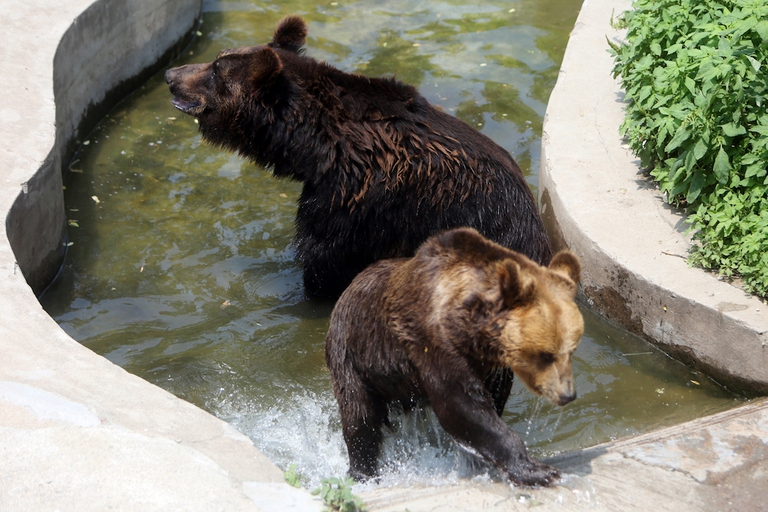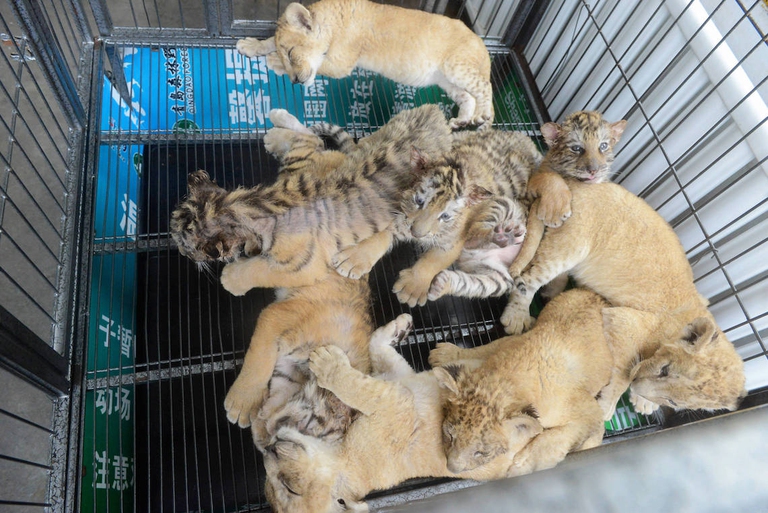
Our species took its first steps in a world covered in trees. Today, forests offer us sustenance, shelter, and clean the air that we breathe.
Le autorità della Cina hanno approvato una legge che vieta la vendita di cibi a base di animali a rischio di estinzione. Ma la norma non convince tutti.
China will be no longer able to sell food made from endangered animals. Beijing’s Parliament approved a new law to protect wild species, with the aim of strengthening the regulatory framekork.
Chinese authorities have taken a historic step forward. The first law for the protection of animals dates back to 1989 and was revised only once (in 2004) for disciplining exportations of products derived from wild species. The new regulation will enter into force on 1 January 2017 and introduces a ban on the production and sale of food made from endangered species, according to AFP quoting the National People’s Congress.
However, what turned non-governmental organisations’ nose is that some products derived from these species could be still sold, bought and used. NGOs had already harshly criticised a preliminary draft that considered endangered animals – including tigers and bears – as commercial resources, without banning slaughter completely. According to the Environmental Investigation Agency, the new law doesn’t halt captive breeding.
Environmentalists also criticised the fact that the law makes no distinction between “food” and “product”, thus allowing loopholes. On the other hand, official Yue Zhongming claimed that “under the new law the use of wild animals and derived products should rely mainly on captive-bred animals, and it must not hurt wild populations and habitats”.
The enforcement of the new law will show if China will be able to carry out the change it really needs. The number of captive-bred tigers has significantly increased over the past few years, hitting 6,000 individuals. Bears are bred for their bile that is used in traditional medicine. In economic terms, just note that captivity breeding is worth 7.8 billion Chinese yuan, i.e. about 1.05 billion euros.
Siamo anche su WhatsApp. Segui il canale ufficiale LifeGate per restare aggiornata, aggiornato sulle ultime notizie e sulle nostre attività.
![]()
Quest'opera è distribuita con Licenza Creative Commons Attribuzione - Non commerciale - Non opere derivate 4.0 Internazionale.
Our species took its first steps in a world covered in trees. Today, forests offer us sustenance, shelter, and clean the air that we breathe.
Poachers in Africa are encroaching on wildlife land and killing rhinos in travel hot spots now devoid of visitors due to the coronavirus pandemic.
Actor and environmental activist Leonardo DiCaprio has contributed two million dollars to a fund to protect Virunga National Park in Congo from threats such as terrorism, the coronavirus and poaching.
For the first time in seventeen years, Iceland’s two main whaling companies won’t resume whale hunting. The announcement concerns this year’s season but could carry into the future.
The relationship between the coronavirus and wildlife is complex: while the pandemic may lead to a reduction in the illegal trade in wild animals, it may also encourage it in other respects.
The largest coral reef in the world is severely threatened by climate change, but researchers are developing strategies that could contribute to saving the Great Barrier Reef.
NGO Free the Bears has opened a mountain sanctuary for moon bears in Laos. With the government’s help, it aims to close all bile farms by 2022.
Seychelles have extended its marine protected area, which now covers over 400,000 square kilometres, an area larger than Germany.
The tapir was reintroduced into Brazil’s Atlantic Forest, the country’s most at-risk ecosystem. The species can play a key role in the forest’s recovery.









